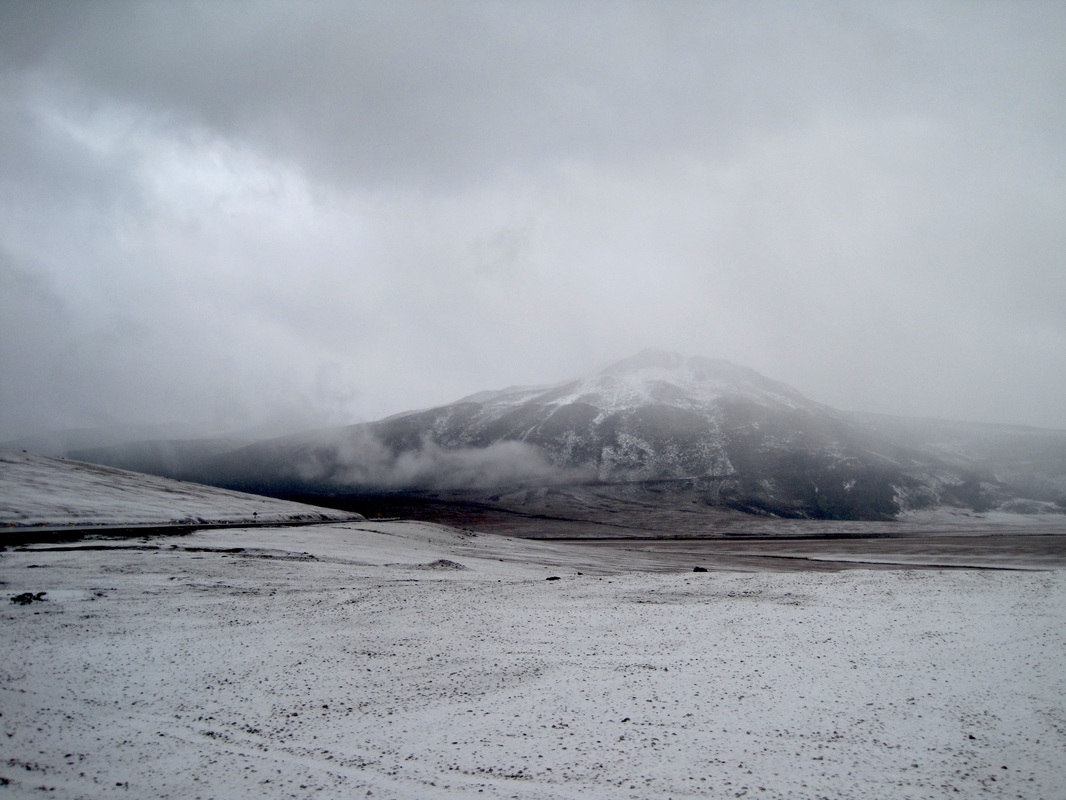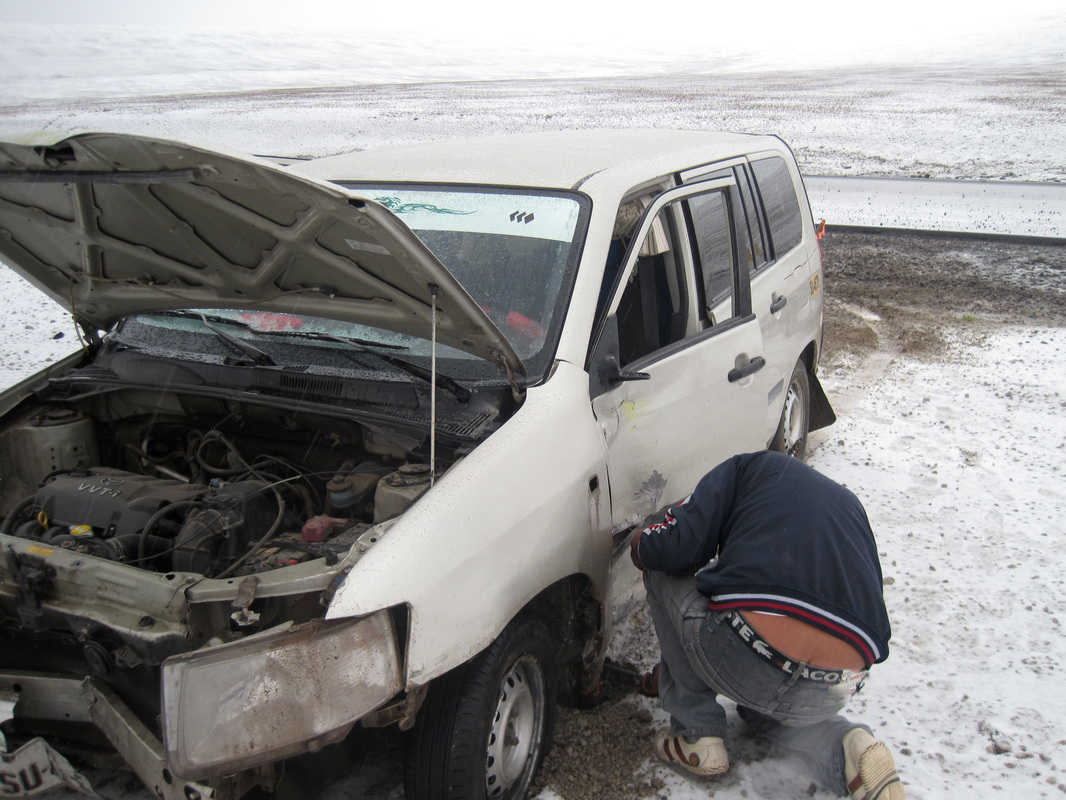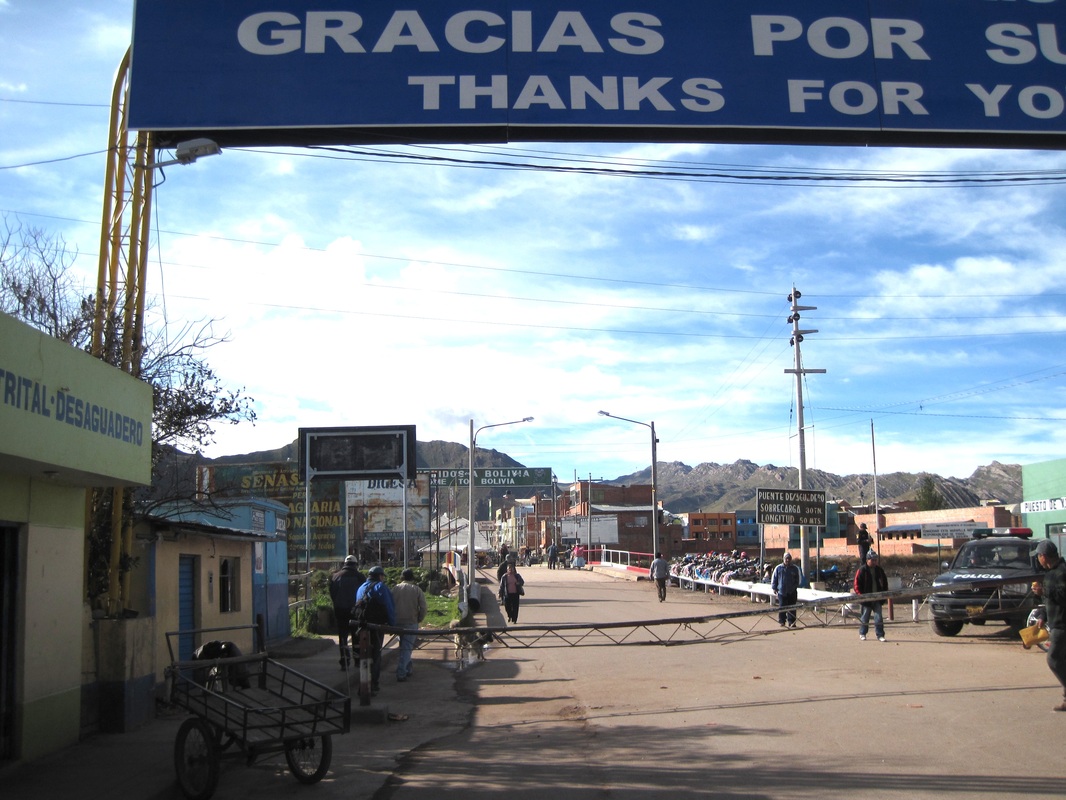The trip should go something like this:
9:15-11:00-flight from Lima to Juliaca
11:15-12:15-bus from Juliaca to Puno bus terminal
1:30-3:30-bus from Puno to Desaguadero
3:30-4:00-pass through the Perú/Bolivia border at Desaguadero
4:00-5:30-minibus from the border to El Alto
5:30-6:00-minibus from El Alto to the Prado
Yes, I would be back in time for Tuesday evening festivities I thought.
And then there were blockades. Surprisingly, the Peruvian side was worse. This was how it actually went:
I exited the plane at the Juliaca airport and stood in line for what seemed like hours to use the restroom. Once that was finally taken care of, I went outside and found a small coach-style bus bound for Puno. I took a seat behind a young Venezuelan guy who had grown up in the United States and studied “Security and Peace” in Tel Aviv. I rarely agreed with the assessments of the world he was making to the British couple in front of him. I was also lucky enough to be sitting beside a man traveling on business who kept insisting I have lunch with him. While showing me pictures of his wife. I told him I’d have to check on a bus to the border first.
The bus made it to Puno easily and drove around the small town on Lake Titicaca dropping people off at their hotels. The bus terminal was the last stop and 3 of us got off, only to be told there were road blocks and busses to the border were not running. The three of us: a young Peruvian man, a middle-aged Argentinean woman, and myself, kept giving each other frustrated looks. The woman asked a taxi driver if there was any other way to go to Desaguadero. For 100 soles a piece he said he would drive us “the long way.” We haggled down to 50 each, bought some snacks and hopped in the back of the car.
“The long way,” he told us, would take four hours. I ate some of my Ritz crackers and nodded off to sleep. But with the 3 of us stuffed in the back seat (one other man was in the front with the driver, apparently having contracted him earlier), the complete lack of heat in the car (like all Andean cars), and the curvy mountain roads, it was not an ideal sleeping environment.
We fortunately (and I mean that with all the gravity the word can have) flew off the road right where we did, because there was no steep embankment. About 70% of the road in that section of the drive did have a steep descent off to the side. But we were lucky. The car hadn’t been equipped with seatbelts, but no one flew too far out of their seat. The driver’s-side window shattered, but no on was cut.
Fortunately, not long after a man in a pickup truck came driving by in the opposite direction. The Peruvian man flagged him down, and tried to negotiate some sort of transportation. The man was refusing, but even before he left, a station wagon occupied by a husband and wife drove up. With only minimal convincing they decided they would turn around and take us to Desaguadero. The taxi driver stayed with the car and we promised to send police or a tow truck his way. The four passengers piled into the back seat of the station wagon, with all of our luggage in the back.
We were on our way again, much less comfortably, and much more slowly. What added to the lagging time were the several police checkpoints we had to go through. Each time, the man driving would be questioned as to why he had a license and registration for a private vehicle, but appeared to be carrying strangers. Cause let’s face it. Nobody was going to believe this gringa was in anyway related to these kind campesinos. After explaining the story, the police were always kind and let us pass. Four hours after the crash, we stopped at the final checkpoint in which another man convinced the vehicle owners to let him ride in the back end of the car for 60 km. My feet and hands were numb from the cold. My butt and thighs were numb from the position I had been sitting in, unable to move for four hours. And I was nauseous from the curvy roads and probably whiplash from the crash. The Argentinean woman had to ask twice to pull over so she could vomit.
Eventually, after 6 hours in that position (making a total of 8 hours in transit) we arrived in Desaguadero. But of course, it was 7:30 pm by this time, and the border had been shut since 6pm. Alas, the 3 of us found a hospedaje with 3 beds in a room for 10 soles each. We watched some futbol, ate some chifa, and went to sleep.
At 7am we awoke and went straight to the border. We got our stamps, I used my shiny (not really) new fancy visa de objeto determinado, and we found some minibuses headed for La Paz. The Peruvian man was hesitating as to which bus to take, and ended up getting separated from Luz (I now knew her name) and I. The bus got filled to capacity with the 2 of us, several local Bolivians, and some Colombian university students traveling on holiday.
But alas, it was late April in La Paz, and in the build up to May Day, the COB was protesting by blockading the main thoroughfare from El Alto to La Paz. So halfway down, the bus had to back up, turn around, travel the wrong way on the highway, make an illegal U turn to go the other way (but still the “wrong” way for that side of the road), and turn off onto a side street. I eventually did make it to the Prado, and went directly to Paceña Salteña for lunch. I sat down to eat at 12:15, 27 hours after I boarded the flight bound for Juliaca. So I saved 3 hours by not taking the bus. And the cost really wasn’t that much more than the bus. But I think, with all I went through, a nice full cama tourist bus for 30 hours would have been preferable.




 RSS Feed
RSS Feed
